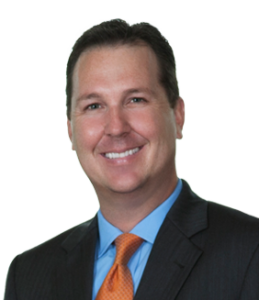There's a stench hanging over the Capitol in Tallahassee today,
The Dance of Legislation for 2023 begins with tort deform, as conflicted corporate lawyers are the Speaker of the House of Representatives (PAUL RENNER, insurance defense partner in 600 lawyer NELSON MULLINS firm and Florida Senate President (KATHLEEN C. PASSIDOMO) founding partner of KELLY, PASSIDOMO & ALBA, LLP corporate law firm in Naples).
Our Boy Governor was briefly an associate at HOLLAND & KNIGHT and an alien implant from KOCH INDUSTRIES.
To Speaker RENNER, Senate President PASSIDOMO and Governor DeSANTIS, happy louche lapdogs for wealthy Dull Republicans.:
Kindly spare us the drama queenery and pompous lectures about tort plaintiff lawyers.
The Speaker and Senate President should be scrutinized over possible conflict of interest. Corporate lawyers in powerful positions leading the charge on attaching plaintiff lawsuits.
Trial Lawyers Push Back Against Florida Plan for More Insurance Tort Reform

It’s now clear what the regular session of the Florida Legislature will focus on when lawmakers convene March 7: More litigation measures that would bring property insurance-type reforms to automobile, liability and other lines of insurance.
The rough outlines of a potentially far-reaching tort reform bill, announced Tuesday by Gov. Ron DeSantis and legislative leaders, immediately met with approval from insurance groups – and produced a strong backlash from the plaintiffs’ bar.
“Florida is under attack. The rights of every Floridian are under assault by insurance companies and corporate elites who think they can dictate which rights should be preserved and which can be tossed aside,” said Curry Pajcic, a Jacksonville trial lawyer and president of the Florida Justice Association.
 Pajcic is familiar to those who have called for more lawsuit limitations in Florida. He was one of the lead attorneys in a 2021 lawsuit that resulted in a $1 billion verdict against two trucking companies after a pileup killed a Florida college student. The trial showed that the truck drivers had little training and were distracted by their cell phones at the time.
Pajcic is familiar to those who have called for more lawsuit limitations in Florida. He was one of the lead attorneys in a 2021 lawsuit that resulted in a $1 billion verdict against two trucking companies after a pileup killed a Florida college student. The trial showed that the truck drivers had little training and were distracted by their cell phones at the time.
Florida Republican leaders did not mention that verdict Tuesday, but said that the state’s legal system has produced far too many “nuclear” verdicts and unnecessary suits, which are costing residents thousands per year in litigation costs that are baked into insurance premiums and product prices.
“For decades, Florida has been considered a judicial hellhole due to excessive litigation and a legal system that benefitted the lawyers more than people who are injured,” DeSantis said in a statement. “We are now working on legal reform that is more in line with the rest of the country and that will bring more businesses and jobs to Florida.”
Proponents had not released a bill by late Tuesday, but officials and insurance industry lobbyists said it likely would piggyback on the major property insurance reform bills approved at special sessions last year. Senate Bill 2A, signed into law Dec. 16, repealed two big cost drivers: one-way attorney fees and assignment-of-benefits agreements in property insurance claims. Senate Bill 2D, enacted last summer, barred the use of fee multipliers in awarding plaintiffs’ attorneys fees in claims litigation.
The new plan would extend those changes to all lines of insurance, including auto insurance claims disputes, and to liability and personal injury claims, said Paul Handerhan, president of the Florida-based Federal Association for Insurance Reform. The idea is to eliminate “frivolous” lawsuits and bring down the cost of doing business, DeSantis said.
Florida has been ranked as the most-expensive state for property insurance and automobile insurance in the last two years, and insurers have blamed excessive litigation for the rise in premiums.
The proposed reforms also would close the gap on bad-faith litigation against insurance companies. SB 2A raised the bar on that, allowing bad-faith claims in property claims only after a breach of contract is proven. But insurance defense attorneys have said more changes are needed to prevent unfounded claims and to extend the bad-faith limits to automobile insurance claims.
Critics and supporters of DeSantis have said it’s the latest in a series of moves by Florida Republican leaders to solidify a more business-friendly, culturally conservative approach to governing. If the regular session next month is anything like recent special sessions, the Republican-majority Legislature will rapidly approve the reforms with few changes.
“First, Governor DeSantis remade the Florida Supreme Court by appointing textualist justices who followed the law instead of making it,” said William Stander, executive director of the Florida Property and Casualty Association. “Now, with the help of Senate President Kathleen Passidomo and House Speaker Paul Renner, Governor DeSantis is proposing to remake Florida’s lawsuit environment across all lines of insurance by tackling some of the worst artificial cost drivers in the system.”
The National Association of Mutual Insurance Companies also praised the proposed changes, saying they would put an end to the “cottage industry for litigation in the state and protect consumers.”
One Florida insurance defense attorney cautioned that it may be best to wait and see the full effect that recent legislative reforms will have, before enacting other limitations.

“I really think that reacting now with any additional measures, without really seeing how SB 2A and 2D play out over the next year or two could potentially have negative consequences and could overcompensate,” said John Riordan, with the Kelley Kronenberg law firm.
Limiting attorney fees and removing the incentive for lawyers to accept smaller claims could ultimately hurt policyholders and turn public opinion against insurers. “There is a balance that we need to strike, between helping those that really need help and stemming the tide of rampant litigation,” he said.
Passidomo, R-Naples, said at the Jacksonville news conference that part of Florida’s litigation problem stems from a small percentage of trial attorneys that have abused the legal system, and that the Florida Bar has done little to discourage the practices.
But trial lawyers have pointed out that the Bar has, in fact, disciplined attorneys in recent years for that reason. Notorious claimants’ lawyer Scot Strems was disbarred in December by the state Supreme Court, after the Bar charged that he had filed thousands of frivolous, unnecessary or duplicate lawsuits on insurance claims.
Trial attorneys and consumer advocates have also noted that insurers have taken other steps that will prevent lawsuits. American Integrity Insurance Co. last year was approved for an endorsement that requires homeowners to settle claims disputes through binding arbitration, in exchange for premium discounts. Citizens Property Insurance Corp., the state-created carrier, will soon have disputes heard by Florida administrative agency judges, not in a court of law.

The latest proposed changes will add to the trend away from litigation, are unneeded, and will make it less attractive for attorneys to accept cases against insurers, leaving insureds without a remedy, lawyers said.
“The right to trial by JURY, not trial by government, is a right that our Founding Fathers fought and died for,” Pajcic said. “Justice is the only thing preventing the insurance industry from taking over our state, limiting our freedom, and irreparably decimating the rights of our neighbors, family, and friends.”
The focus on more tort reforms was pushed in recent weeks by Associated Industries of Florida, representing manufacturing interests, and by the Florida Chamber of Commerce. But the scope of the changes had not been made clear until now – and come as a mild surprise to some in the industry.
The December insurance reforms may take as long as two years to show results and start to reduce insurers’ litigation costs. So, some insurance executives had hoped that the 2023 regular session would focus on a piece of the puzzle that would provide a short-term lifeline for struggling carriers – an expanded, state-backed reinsurance program.
Reinsurance costs have doubled in the last year for some Florida property insurers, and terms, conditions and availability have tightened considerably. Handerhan said he’s confident that the Legislature will have the bandwidth to focus on the long-term tort reforms as well as short-term reinsurance solutions.
At least one other tort reform bill has been pre-filed before the regular session. SB 738, by state Sen. Jason Brodeur, R-Lake Mary, would limit punitive damages on unfair employment claims and would require claims to be brought within one year of a state commission’s findings on a complaint. The bill would exempt state agencies from punitive damages.
Top photo: DeSantis at the press conference Tuesday announcing the tort reform plan.
TOPICS FLORIDA
Was this article valuable?

WRITTEN BYWilliam Rabb
Rabb is Southeast Editor for Insurance Journal. He is a long-time newspaper man in the Deep South; also covered workers' comp insurance issues for a trade publication for a few years.
No comments:
Post a Comment